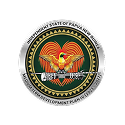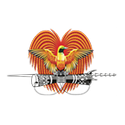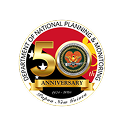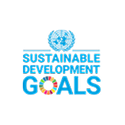Globally, PNG has some of the lowest rates of access to basic water and sanitation facilities. Nationally, only 43% of the population has access to safe water and 15% of the population has access to improved sanitation facilities while open defecation remains a key challenge. According to the Joint Monitoring Programme (JMP) Report 2019, households in PNG, along with three (3) other countries, have the least access to safe water supply globally.
The Papua New Guinea Water, Sanitation and Hygiene (WaSH) Policy 2015 – 2030 reflects the Government’s commitment to improve the quality of lives of people including women, children and the marginalized (disabled, old, etc) living in urban and rural areas. In response to the governments ambitious agenda, a WaSH Program Management Unit (WaSH PMU) was established within Department of National Planning and Monitoring (DNPM) to support and coordinate implementation of the policy with the purpose of establishing a National Water, Sanitation and Hygiene Authority (NWSHA).
A key initiative of the WaSH PMU is the WaSH Management Information System (MIS), which collects real-time data on projects nationwide. Built on the mobile-based mWater platform, this system helps track WaSH progress toward the Medium-Term Development Plan IV (MTDP IV) 2023–2027, the WaSH Policy 2015–2030, and Sustainable Development Goals (SDGs) 6.1 and 6.2.
As of now, the DNPM WaSH MIS database includes:
| S.No. | Category | Data Collected | Total Coverage |
|---|---|---|---|
| 1. | Healthcare Facilities | 413 | 806 |
| 2. | Schools | 1,574 | 13,121 |
| 3. | Districts (communities) | 29 districts (In the 29 districts, the MIS has captured data from 3,084 rural communities) | 96 |
| 4. | District WaSH Plans Completed | 11 | 13,121 |
The WaSH policy aims to see a sustainable and equitable increase in access to safe water, sanitation and promoting long-term hygiene practices particularly in rural and peri-urban areas and schools and health care facilities.
MTDP IV includes WaSH as part of Strategic Priority Area (SPA) 2-Connect PNG-Deliberate Intervention Program (DIP) 2.6-National Water and Sanitation). The goal is to increase rural access to safe drinking water from 48% to 70% and improve sanitation from 33% to 60% by 2027.
The DNPM WaSH PMU, along with stakeholders, is driving four key investment programs:
WaSH PMU is partnering with districts to develop District WaSH Plans that acts as investment roadmap that aligns with delivering on the MTDP IV-DIP 2.6, key investment programs, whilst incorporating district specific objectives and targets.
Currently, 11 districts—Goilala, Alotau, Ijivitari, Wau Waria, Rai Coast, Daulo, Chuave, Pomio, Rabaul, Manus, and Tewai-Siassi—have partnered with the WaSH PMU under a Memorandum of Understanding (MoU) signed in October 2023. This initiative follows a 70-30 ‘kina-4-kina’ funding model, where 70% of the funding is provided by the national government and 30% by the district, ensuring ownership, commitment, and sustainability at the sub-national level.
The WaSH PMU, in collaboration with partners, aims to expand this initiative to additional districts, further enhancing WaSH service accessibility across the country.
A significant milestone under the MoU has been the successful development of government-led District WaSH Plans (DWP) in Pomio and Rabaul. These plans pave the way for the German IKI project to implement WaSH infrastructure, ensuring a greater allocation of development funding toward WaSH hardware.
This initiative underscores the WaSH PMU’s commitment to bottom-up, evidence-based planning and sustainable implementation.
| S.No. | Development Partner | Project/Program | Focus Area |
|---|---|---|---|
| 1. | IKI – German Government | PacFreshH2O (Rabaul & Pomio) | Climate resilience, water resource protection, gender equity, livelihoods |
| 2. | EU II WaSH (UNICEF) | Klinpela Banz Projek & Convergence Program (Bogia) | Strengthening WaSH governance, improving infrastructure in schools, healthcare facilities, and markets |
| 3. | DFAT | Water for Women (WaSH Consortium) & Australian Water Partnership | Gender-inclusive, climate-resilient WaSH solutions |
| 4. | KOICA-UNICEF | Conflict-sensitive, climate-resilient WaSH | Promoting peacebuilding through improved WaSH services |
Despite sector challenges, the Government of Papua New Guinea recognizes WaSH as a key development priority. Moving forward, the WaSH PMU is working toward establishing the National WaSH Authority (NWaSHA) and developing a WaSH Sector Plan. These initiatives aim to strengthen policy implementation, improve coordination, secure sustainable government financing, and improve service delivery, guaranteeing that safe water, sanitation, and hygiene services reach all Papua New Guineans.




